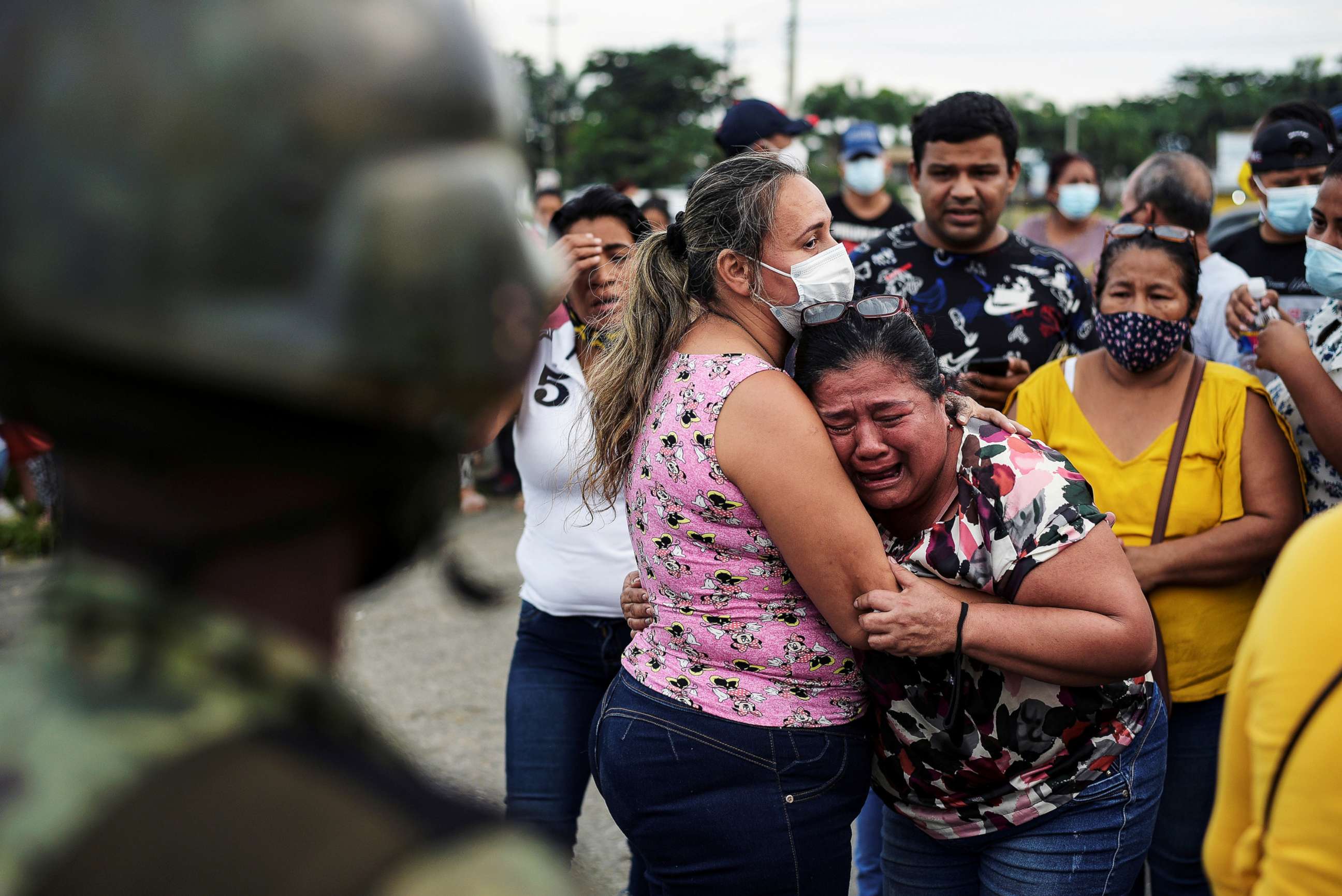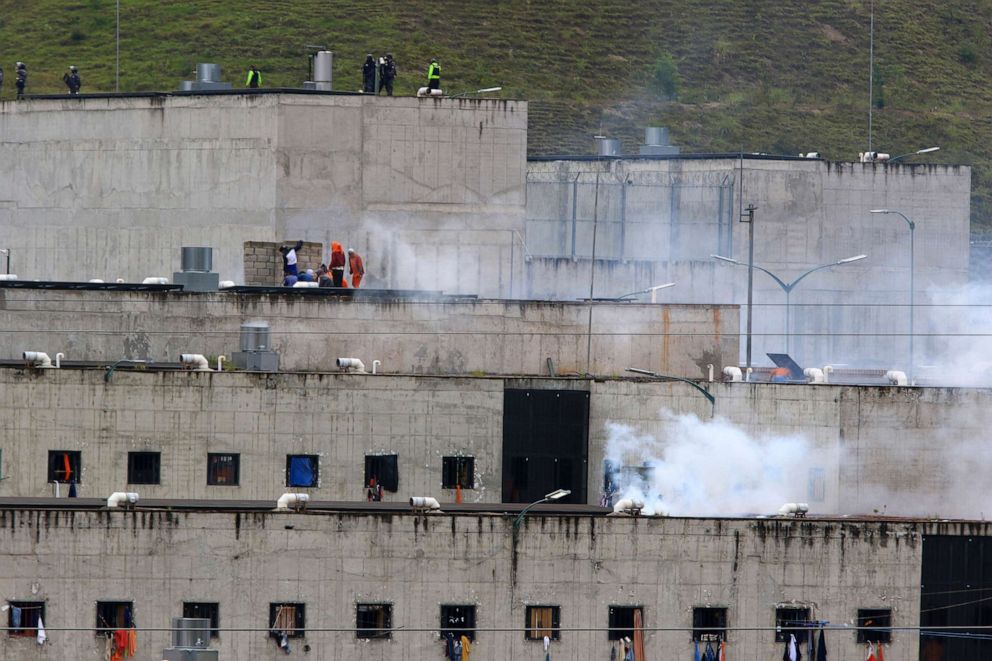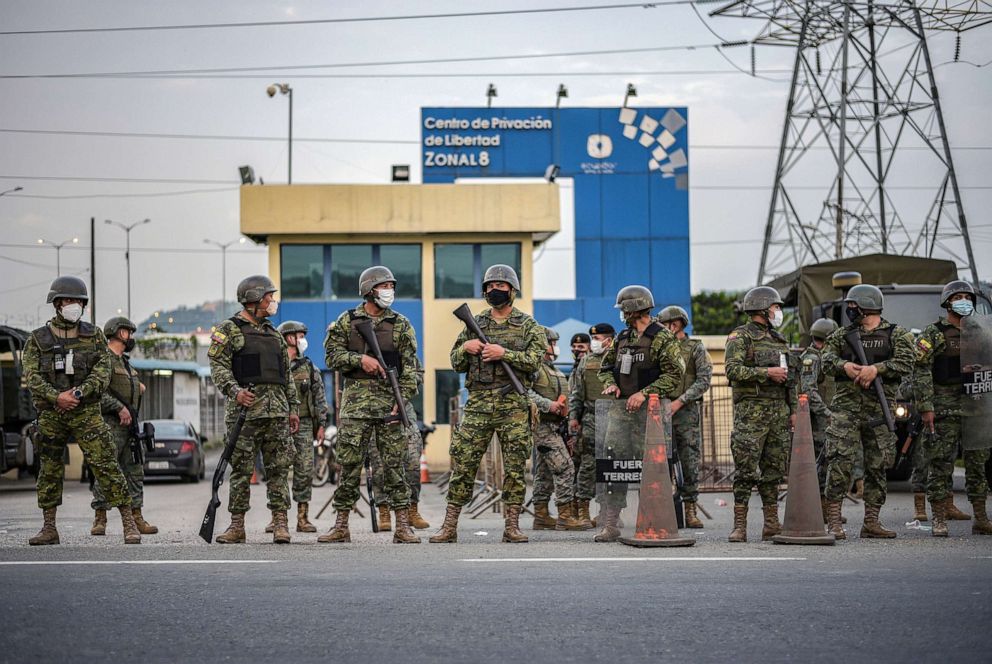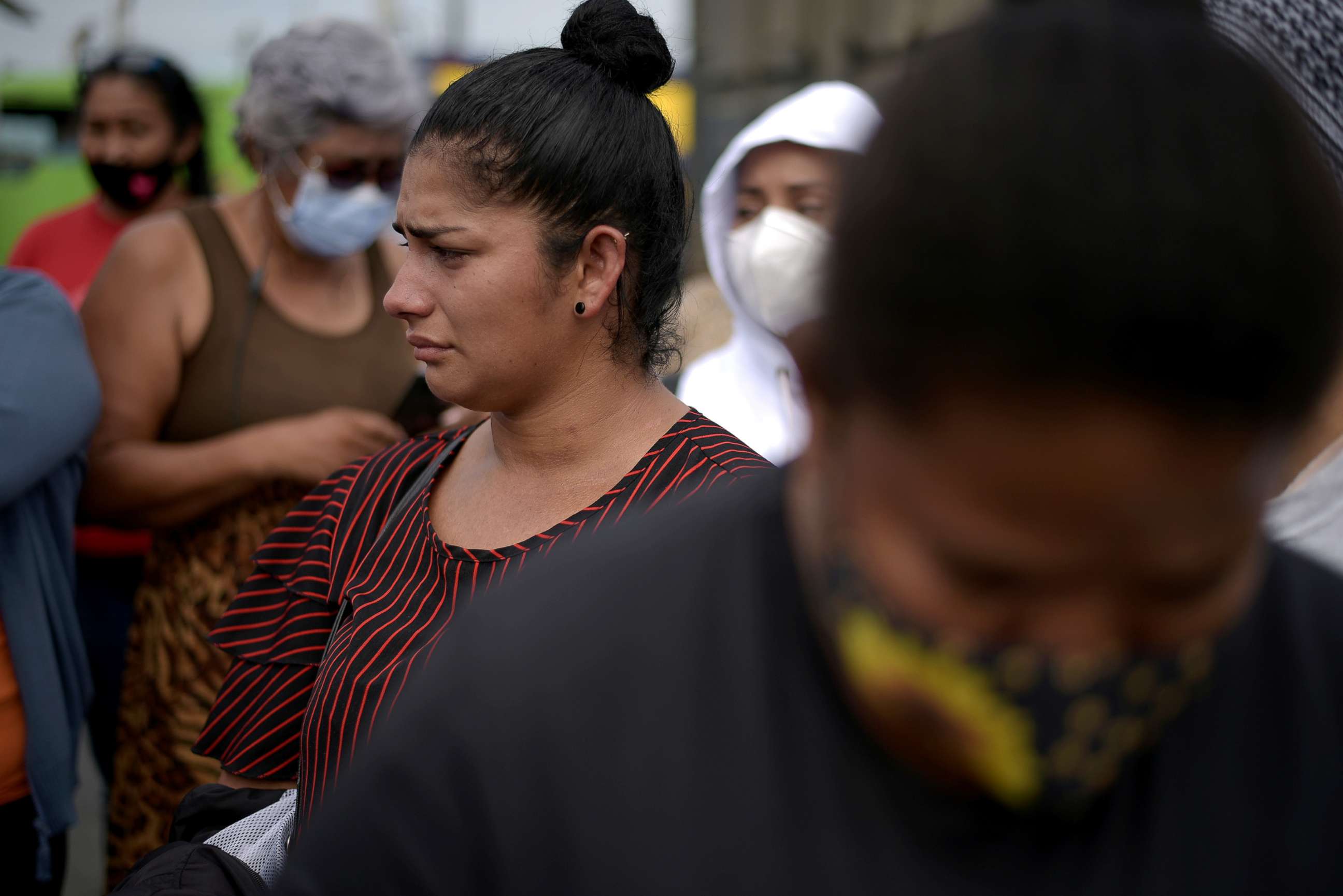Mother fears for son's life after dozens killed in Ecuador prison riots
At least 81 were killed in riots at four prisons across Ecuador on Tuesday.
RIO DE JANEIRO and LONDON -- It's been days since Alejandra heard from her son.
The 42-year-old mother has been one of many gathered outside a large prison in Guayaquil, a port city on Ecuador's southern coast, where dozens of inmates were killed Tuesday in a riot.
"I cannot stop thinking my son is dead," said Alejandra, who asked ABC News not to use her last name or her son's name for fear of retaliation.
Alejandra said her 26-year-old son was being held in pre-trial detention for a petty crime and that he has a court appearance scheduled for next year. She said she received a telephone call from him on Tuesday, when the violence erupted. He told her, "I am afraid to die."

Clashes broke out at the Guayaquil prison and three others across Ecuador between rival drug gangs trying "to seize the criminal leadership of the detention centers," according to Gen. Edmundo Moncayo, head of Ecuador's prison system, known by its Spanish-language acronym SNAI.
Moncayo told reporters during a press conference Tuesday that the violence was precipitated by a break in leadership of a prominent local gang called Los Choneros, whose leader was assassinated in December at a shopping mall in the port city of Manta on Ecuador's central coast.
Fernando Carrion, a research professor at FLACSO Ecuador, a postgraduate institution in Quito, told ABC News that revenge was expected but not to this level. He said Los Choneros is linked to Mexico's Sinaloa Cartel and that, although Ecuador does not produce drugs, criminal gangs use the South American country to transport drugs and launder money.
"We have never seen such a cruel mutiny," Carrion told ABC News. "It absolutely has never happened before in the history of Ecuador, and this is only the beginning. I believe it was an earthquake and now we will have the aftershocks."

Moncayo told reporters that a search for weapons was carried out at the Guayaquil prison on Monday, after officials were tipped off by Ecuador's national police force that inmates had two firearms smuggled to them by a guard and were planning to kill Los Choneros leaders. That search sparked a series of coordinated, simultaneous mutinies at four prisons in three different provinces the following morning, and it wasn't until the afternoon that authorities regained control, according to Moncayo.
Carrion told ABC News that the deadly riots prove what little power Ecuadorian authorities actually wield inside prisons ever since the country's principal intelligence agency, known by its Spanish-language acronym SENAIN, was shut down in 2018.
"For criminal groups, reaching this level of efficiency and planning is truly showing the problems of prison systems and lack of institutionalization," he said.

Videos recorded by inmates and shared on social media showed beheaded and mutilated corpses in the aftermath of the bloodbath.
"These attacks were not only a tragedy, but criminal groups were sending clear messages to other groups," Carrion told ABC News. "We are talking about bodies dismembered -- this is a way to communicate."
The number of dead has continued to rise in the days since. As of Friday, the death toll from the riots was 81, while 20 others remained injured, according to the National Police of Ecuador. Authorities have yet to release the names of those killed or wounded.
"As soon as I heard the news, I went straight to the prison," Alejandra told ABC News. "When I arrived, many women were already there on their knees, crying, praying."

Alejandra, who lives in Guayaquil and makes a lower-middle-class wage working in an office, said she was forced to go back to work Friday after spending two days outside the prison with other families of inmates.
"I am constantly thinking of my son," she said. "I would like to be with other mothers in front of the jail."
Alejandra is among those calling on authorities to identify the dead and wounded so they can know whether their loved ones survived the attacks.
"This is not too much to ask," she said. "They don't want to tell us anything."




